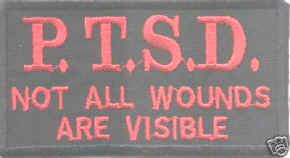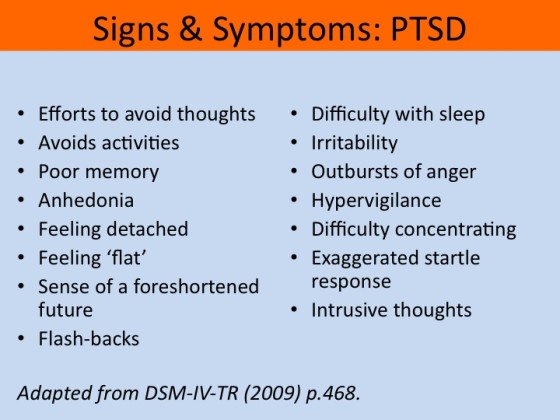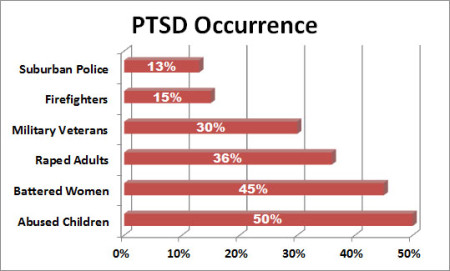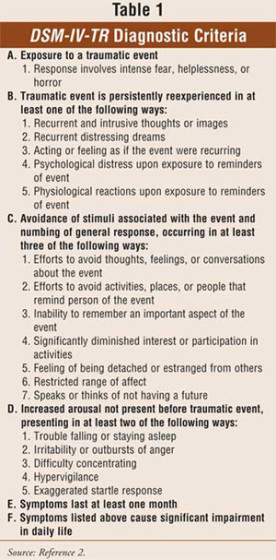Helping A Loved One Cope With PTSD

Many stepfathers are military veterans, some of who are affected by post traumatic stress disorder (PTSD). While PTSD was first brought to public attention in relation to war veterans, it can result from a variety of traumatic incidents like mugging, rape, torture, being kidnapped or held captive, child abuse, car accidents, train wrecks, plane crashes, bombings or natural disasters such as floods or earthquakes. Writer Marie Miller shares how you can help a loved one suffering from PTSD.
What Is PTSD?
Post traumatic stress disorder (PTSD) is one of the most common types of anxiety disorder afflicting the American population including obsessive-compulsive disorder and panic disorder. Individuals with PTSD react to a dangerous situation with excessive and unreasonable fear. The feeling persists even when there is no more danger. The condition may last for months or even years. Recovery is gradual, varying from one person to another.
PTSD Statistics
Anxiety disorders affect around 40 million adult Americans (18 years and older) in a given year or 18.1 percent of the population in this age group. Of this figure, 7.7 million or 3.5 percent have PTSD.
More Information on PTSD
People with PTSD develop the condition after exposure to a traumatic event where death or serious injury actually happened or was a serious threat. The person with PTSD may be the one directly involved or it may have happened to someone close or the person may have been present when the event happened.
Although extremely frightening situations have happened to many people, not everyone will develop PTSD. The risk factors for having the condition include a genetic disposition, prior exposure to a stressful situation, abuse during childhood and family settings.
Events causing the trauma are war, rape, a stay in prison, natural disasters and accidents. PTSD may not manifest itself immediately. It may not be diagnosed right away since there are criteria to be met before an official diagnosis is given.
Treatment for PTSD can be a strain on the budget, even with the help of medical insurance. That is why identifying the cause and liable person or agency and seeking just compensation is important. According to http://bobcohenlaw.com/ , if the condition is a consequence of a serious car accident, the other driver can be held accountable for the health care of the victim who develops PTSD secondary to the car crash. Aside from the financial burden, the person with PTSD suffers from employment problems and lost opportunities.
Living With a Person With PTSD
If a family member has PTSD, everyone in the home is affected as well. It is the responsibility of the “normal” members to help and support the one with the disorder. With PTSD, the person will often relive the event and have flashbacks.
They may exhibit aggression and have violent tendencies. They may become emotionally numb and isolated. Most suffer from generalized anxiety or depression simultaneously with PTSD.
A professional therapist must administer the treatment for PTSD. But family members play an essential role in the treatment’s success. Relationships are destroyed when the family is not equipped to handle a family member who has PTSD.
Ways You Can Help Your Loved One
o Learn about PTSD so you will know what to expect and what the person is experiencing.
o Offer to accompany your family member to doctor’s visits and be there to show support.
o Show your availability if the person wants to talk but don’t force talking if he or she doesn’t want to.
o Plan activities that are not excitable such as eating out or watching a movie and bring the family along.
o Do physical activities such as walking or biking. Exercise helps clear the mind.
o Encourage interaction with family and friends who are supportive but do not put pressure on the person to do so.
o If there is potential violence, remove everyone from the area and call for help. Make a prior agreement about this matter so the person will not misunderstand you.
Marie Miller is an occupational nurse and has seen her share of people with mental health conditions. She offers advice on how families and friends can handle loved ones experiencing anxiety disorders.
Please share this post with your social media network. Thank you.
Citations:
David Goehring. “On Balance” 12 July 2012









